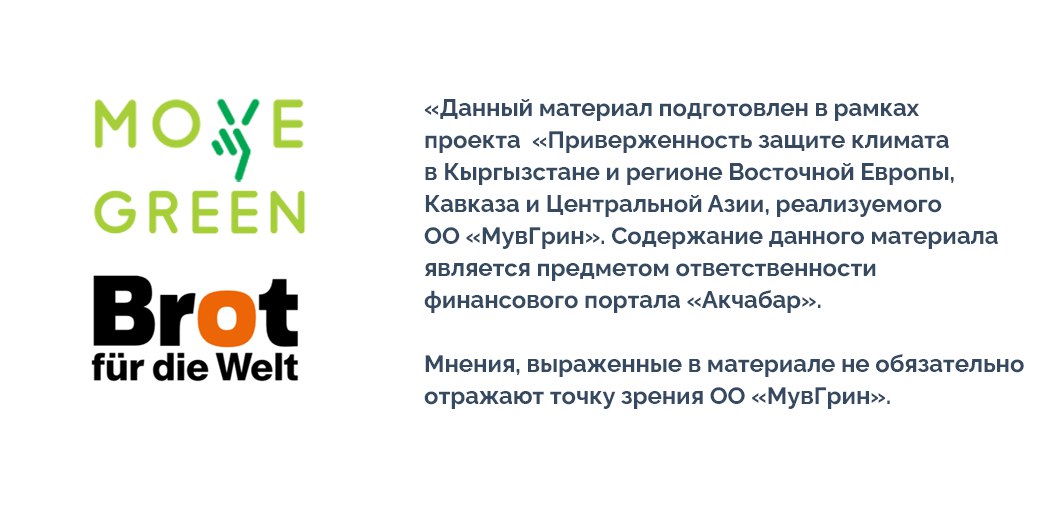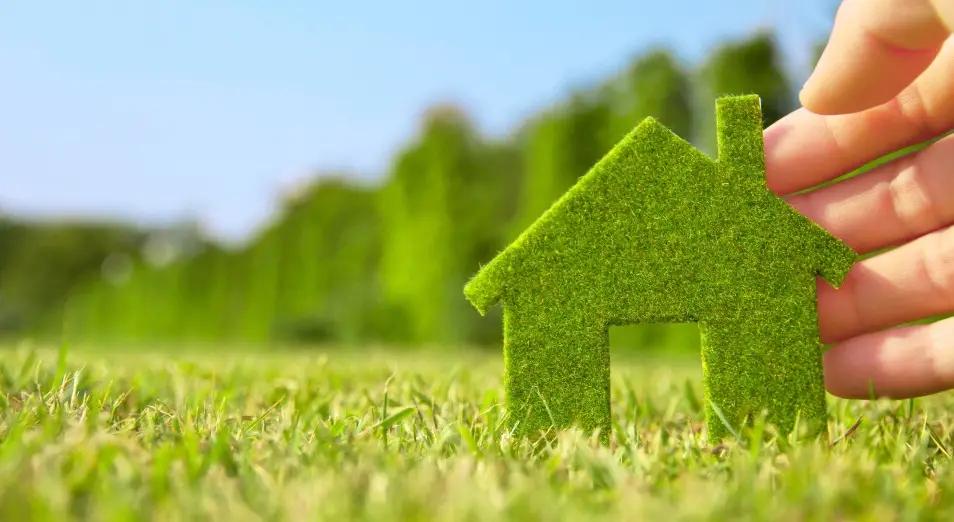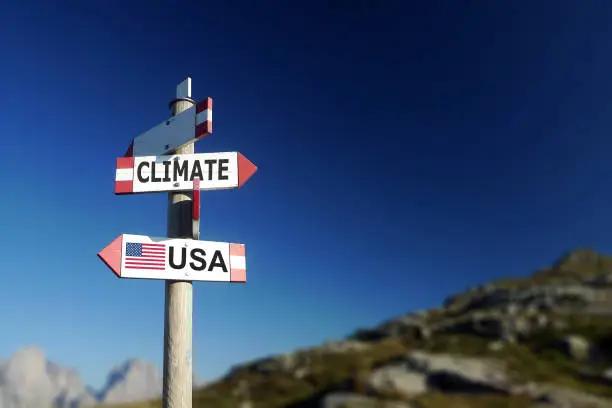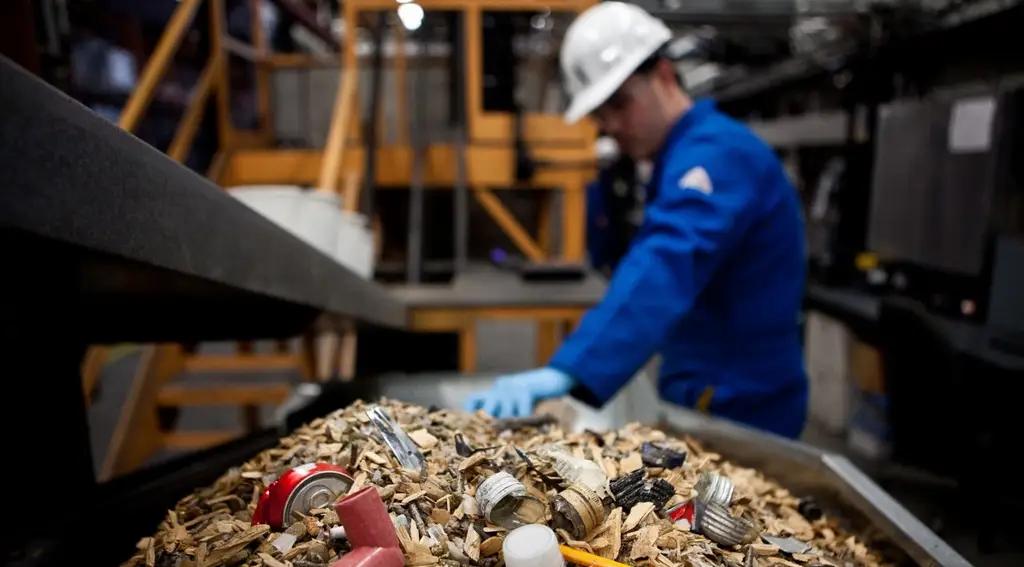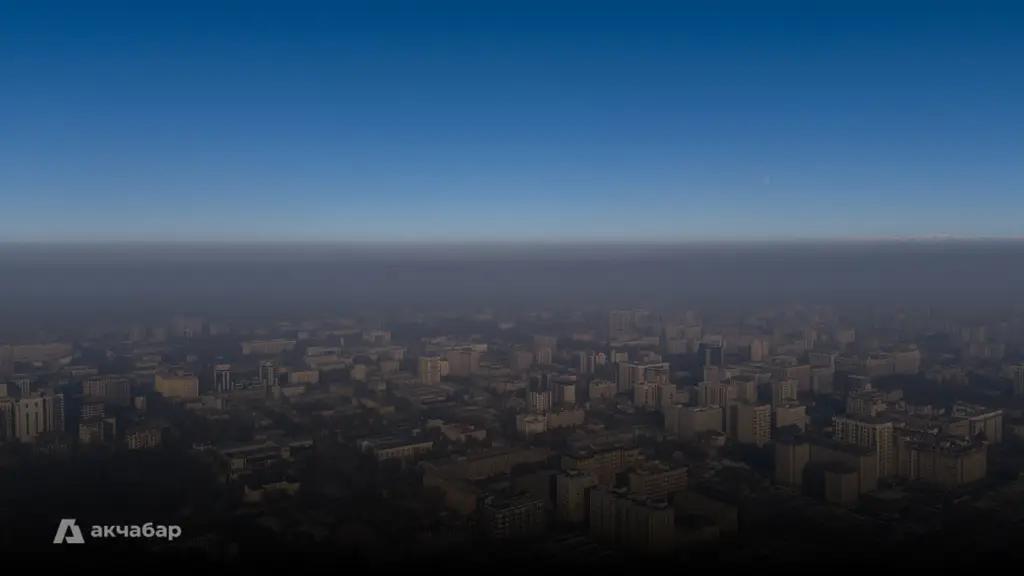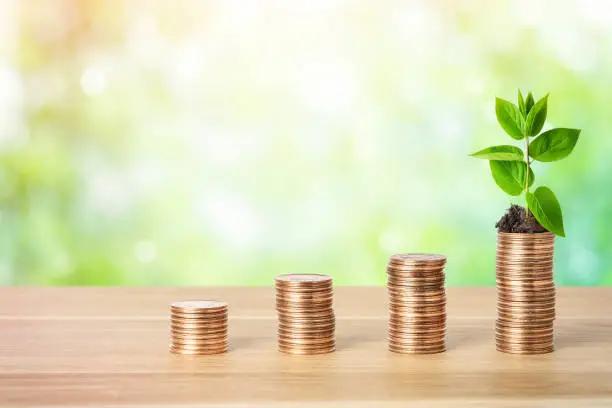
Published
09/21/2024, 11:30In Kyrgyzstan, the Ministry of Finance, with the support of the World Bank, is beginning to introduce the process of budget green expenditure labelling.
Within the framework of the World Bank's technical assistance in exploring innovative green finance options to increase financing for the implementation of the NDC (Nationally Determined Contribution of Kyrgyzstan to the Paris Agreement on Emissions Reduction and Adaptation to Climate Change Impacts), the Ministry of Finance of the Kyrgyz Republic together with the World Bank experts and representatives of ministries and agencies have been taking active measures to introduce the process of budget green expenditure labelling in Kyrgyzstan.
This project aims to monitor and control how public money is allocated to environmental programs. This will help Kyrgyzstan to more transparently use the budget on nature protection and attract international funding for environmental projects.

The labelling will make it possible to track and categorize green finance flows, i.e. funds allocated for environmental and climate change-related activities. In other words, everyone will be from now on aware of what environmental and climate goals public funds are being allocated for.
This is an important part of the country's efforts to achieve the UN Sustainable Development Goals, aimed to improve the environmental situation and combat the effects of climate change.
In addition, it is expected, that this initiative will positively affect the attraction of international climate finance, which will create new opportunities for environmental project implementation in Kyrgyzstan and environmental protection innovative solutions support.
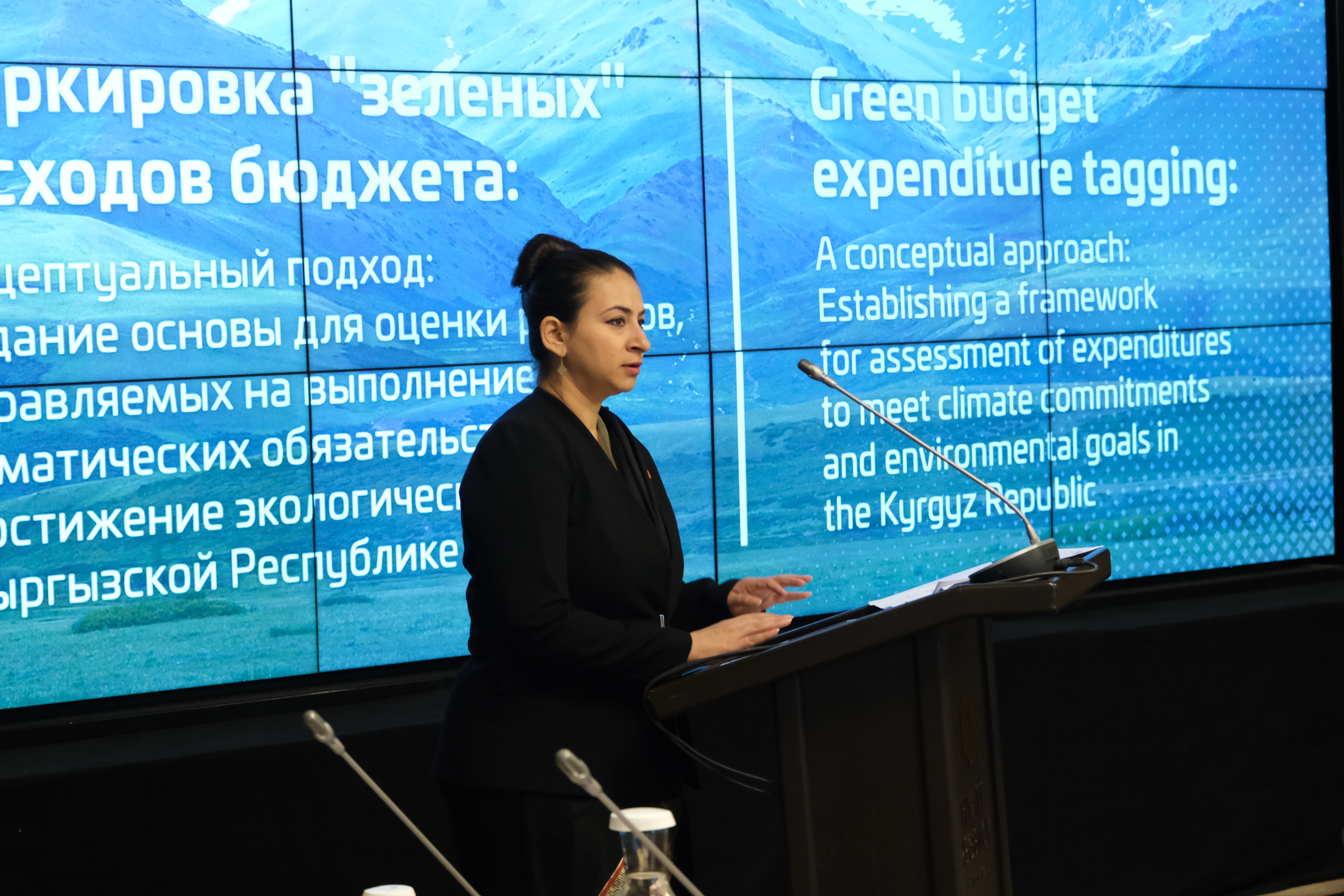
”The budget green spending labelling will be a key tool to increase transparency, leverage financing and mobilize resources to achieve environmental and climate goals in Kyrgyzstan. The project aims to ensure that every som spent makes a difference for a sustainable and ecologically focused future,” Lila Raina, World Bank Environment Economist, said.
The pilot project on implementing the green budget expenditure labelling system has been launched in the Ministry of Natural Resources, Ecology and Technical Supervision of the Kyrgyz Republic and the Ministry of Emergency Situations. These agencies were selected as the most actively involved in fulfilling national and international commitments in the climate and environment.
The Ministry of Finance also notes that care for the environment is a priority area of the National Development Strategy of the country and the introduction of green labels is fully consistent with its objectives.
The introduction of labelling green budget expenditures will ensure efficiency, transparency and accountability of financial systems, and will guarantee that climate and environmental goals will not be overshadowed.
Ruslan Tatikov, Deputy Minister of Finance, believes that the system of labelling green budget expenditures presented by the World Bank is a strategic step towards solving environmental problems, and the basis for classifying expenditures. Labelling is a tool that ensures accountability and transparency of financial systems and guarantees the achievement of environmental and climate goals. A green budget will help with green tax incentives and finance tools shaping.
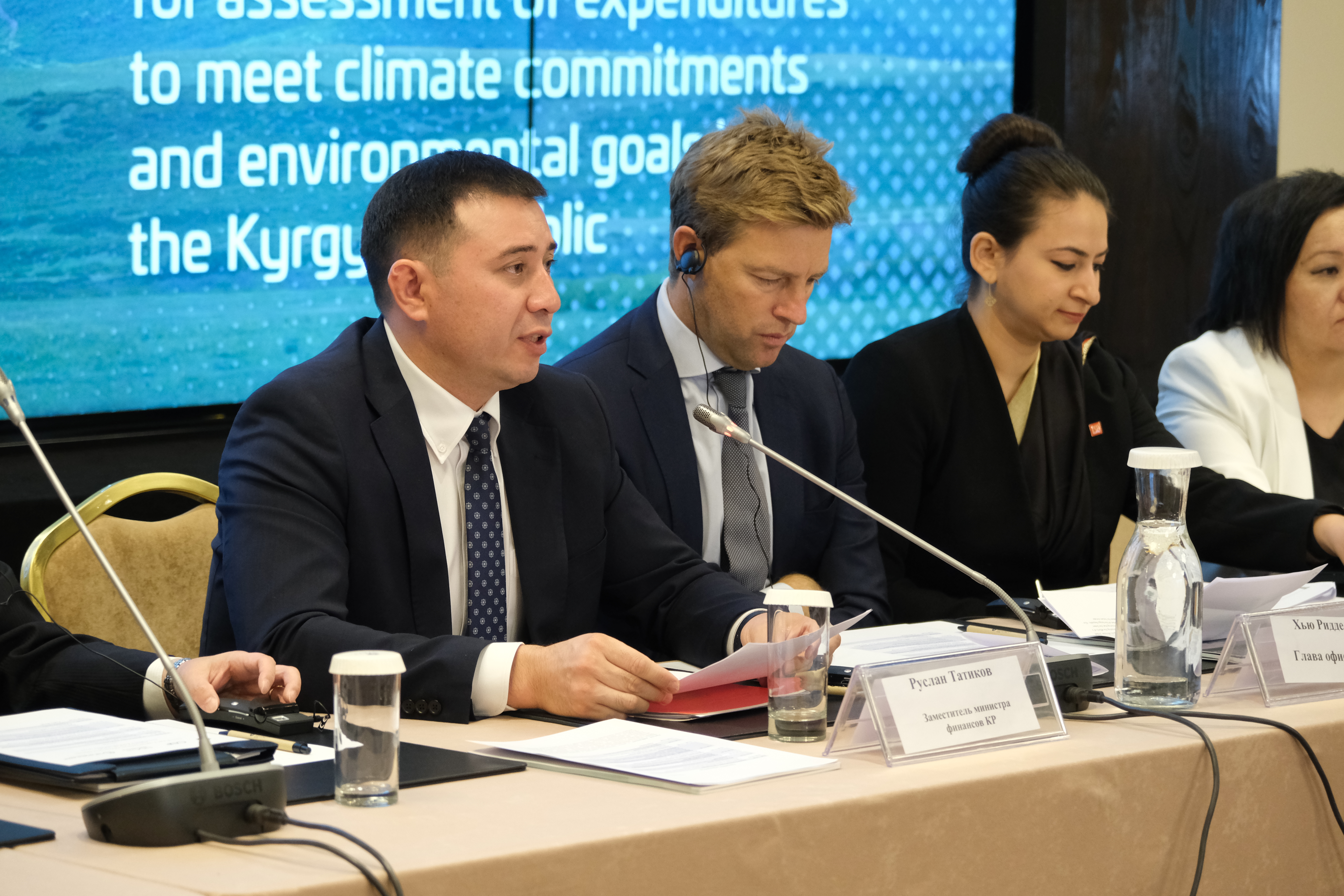
By the way, the Ministry of Finance has celebrated its 100th anniversary this year, and reflecting on the ministry's activities, Tatikov added that the future will require new approaches and innovations.
The changing climate affects all countries and changes people's lives, weather conditions, and sea levels. Therefore, people of all over the world are concerned about climate and ecological problems, and states are trying to contribute to improving the situation.
The Sustainable Development Goals (SDGs), also known as the Global Goals, were adopted by the UN in 2015 as a universal call to action to eradicate poverty, protect the planet and ensure peace and prosperity by 2030.
The Sustainable Development Goals, and there are seventeen of them and they are integrated, recognize that actions in one area affect outcomes in others and that development must balance social, economic and environmental sustainability.
The introduction of green budget expenditure labelling will help take a step towards the implementation of SDG No. 13, which calls for urgent action to combat climate change and its impacts.
In addition, such innovations help fulfil the requirements of the Paris Agreement, which we signed in 2018. As of April 2018, the Paris Climate Agreement has been ratified by 175 parties and 168 parties have submitted their national plans to the UNFCCC Secretariat.
According to the UN data, between 1880 and 2012, the average global temperature increased by 0.85 degrees Celsius. At the same time, each 1-degree increase in temperature leads to a reduction in cereal yields by about 5%.
Between 1981 and 2002, global yields of corn, wheat and other staple crops dropped significantly - by 40 megatons per year.
Rising ocean temperatures and less snow and ice have led to rising sea levels. Between 1901 and 2010, the global average sea level rose by 19 centimetres due to the increase in the amount of water in the oceans caused by general warming and melting glaciers. Every decade since 1979, the area of Arctic sea ice has decreased by 1.07 million square kilometres.
Experts predict that average sea levels will rise by 24-30 centimetres by 2065 and 40-63 centimetres by 2100. Most of the effects of climate change will persist for centuries to come, even if emissions stop.
Since 1990, global carbon dioxide (CO2) emissions have increased by nearly 50%. Between 2000 and 2010, emissions grew faster than during three previous decades.
Meanwhile, our country has adopted several important documents relating to climate change and environmental issues. Among them is the United Nations Framework Convention on Climate Change, which recognizes that the Earth's climate change and its adverse effects are a common concern to humankind. Also, the Aarhus Convention was set up to expand the role of citizens and civil society organizations in environmental issues and is based on the principles of participatory democracy. The Aarhus Convention sets some rights for individuals and civil society organizations to the environment.
